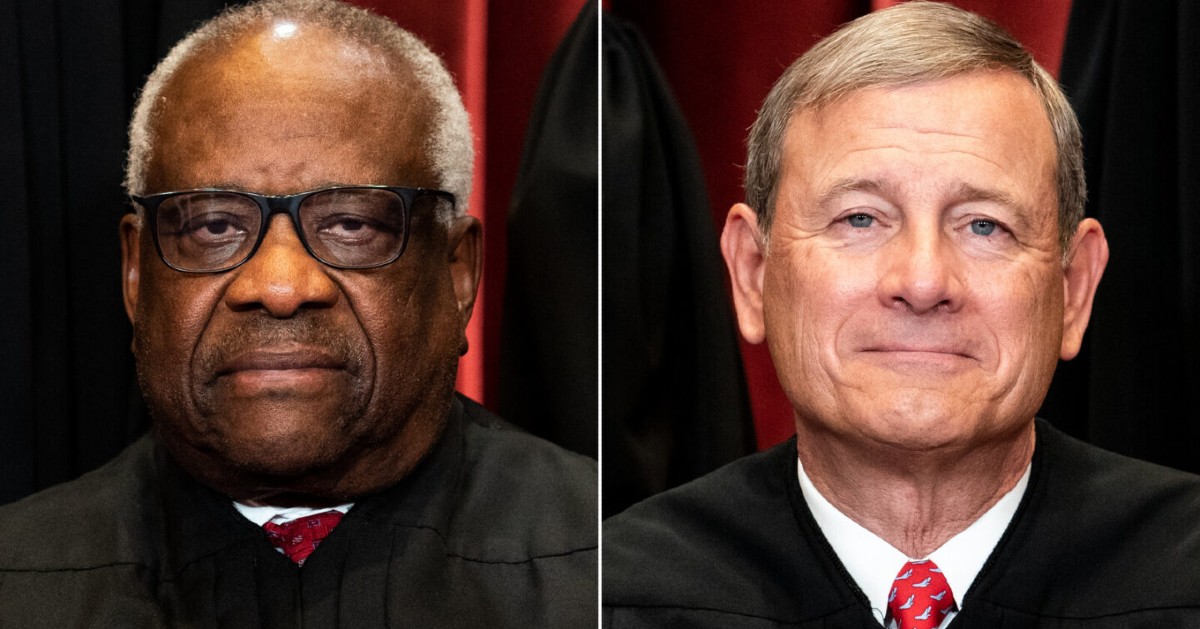OPINION: This article may contain commentary which reflects the author's opinion.
The U.S. Supreme Court rejected a bid by Republican attorneys general to defend an immigration rule put in place by former President Donald Trump.
According to Reuters, the justices turned down an effort by 13 GOP attorneys general who sought to take on the legal defense of a rule that barred permanent residency for immigrants who were deemed to need taxpayer-funded benefits.
In an unsigned one-sentence ruling, the court “dismissed as improvidently granted” an appeal by the AGs led by Mark Brnovich from Arizona that sought to defend the rule after President Joe Biden’s administration refused to do so and rescinded it.
The Trump-era rule enlarged the scope of immigrants who were deemed more likely to become a “public charge,” having to rely mainly on government benefits for their subsistence.
Reuters adds:
The state attorneys general had hoped to ask lower courts to throw out decisions that sided with various challenges to the rule, including a number of Democratic-led states.
Biden’s administration in February proposed a new public charge rule that it called more “fair and humane.” It would avoid penalizing people for seeking medical attention and other services.
Trump’s rule was in effect from February 2020 until Biden’s administration rescinded it in March 2021, acting on a decision in a separate legal case in Illinois that vacated the rule nationwide. Republican state officials also sought to intervene in that case in their uphill battle to revive Trump’s rule.
Guidelines that had been in place for more than 20 years noted that immigrants who are likely to become mostly dependent on taxpayer-funded assistance of long-term institutionalization, such as in a care facility or a nursing home would be barred from being granted legal permanent residency, otherwise known as a “green card.”
Trump expanded the policy to include anyone who was deemed more likely to need a wider scope of non-cash federal benefits as well like Medicaid, food assistance, and housing for more than an aggregate of 12 months over any three-year period.
The U.S. Ninth Circuit Court of Appeals in San Francisco ruled in 2020 that Trump’s policy improperly expanded the definition of who is considered to be a “public charge” in violation of the Administrative Procedure Act, while other courts issued similar decisions.
“Brnovich sought to intervene in a challenge to Trump’s immigration rule involving three lawsuits, including two filed in California and Washington state by 18 mostly Democratic-led states and the District of Columbia,” Reuters reported.
“Brnovich was joined by officials from Alabama, Arkansas, Indiana, Kansas, Louisiana, Mississippi, Missouri, Montana, Oklahoma, South Carolina, Texas, and West Virginia,” the report continued.
“The Republican officials said the public charge rule would save states more than $1 billion annually by limiting the immigration of individuals who are not self-sufficient,” the report added.
Over the span of time that the policy was enforced, the federal government only issued five adverse decisions pertaining to it, court filings noted. All of those have since been reversed.
That said, the Supreme Court ruled in early March that the GOP attorney general in Kentucky, Daniel Cameron, could try to restore a restrictive abortion law after Democratic Gov. Andy Beshear’s administration dropped defending the statute after lower courts struck it down.
Earlier this week, the high court issued another immigration-related ruling in which justices said that illegal aliens detained for six months do not have the legal right to a bond hearing for release.
“The decision addressed two separate cases involving three illegal aliens, two of which were Mexican nationals that entered the U.S. illegally after being previously deported. After they were detained, they filed a putative class action for a bond hearing after six months of detention,” the Daily Caller reported.
“The third illegal alien was from El Salvador and also reentered the country illegally after being previously deported. He also sued in Washington federal court for a bond hearing. The case was brought to the high court under the Trump administration and was inherited by the Biden administration, which continued to pursue the previous administration’s fight,” the outlet added.
In an 8-1 ruling that brought together the conservative and liberal wings of the court, liberal Justice Sonia Sotomayor wrote that the law is silent on the point.
